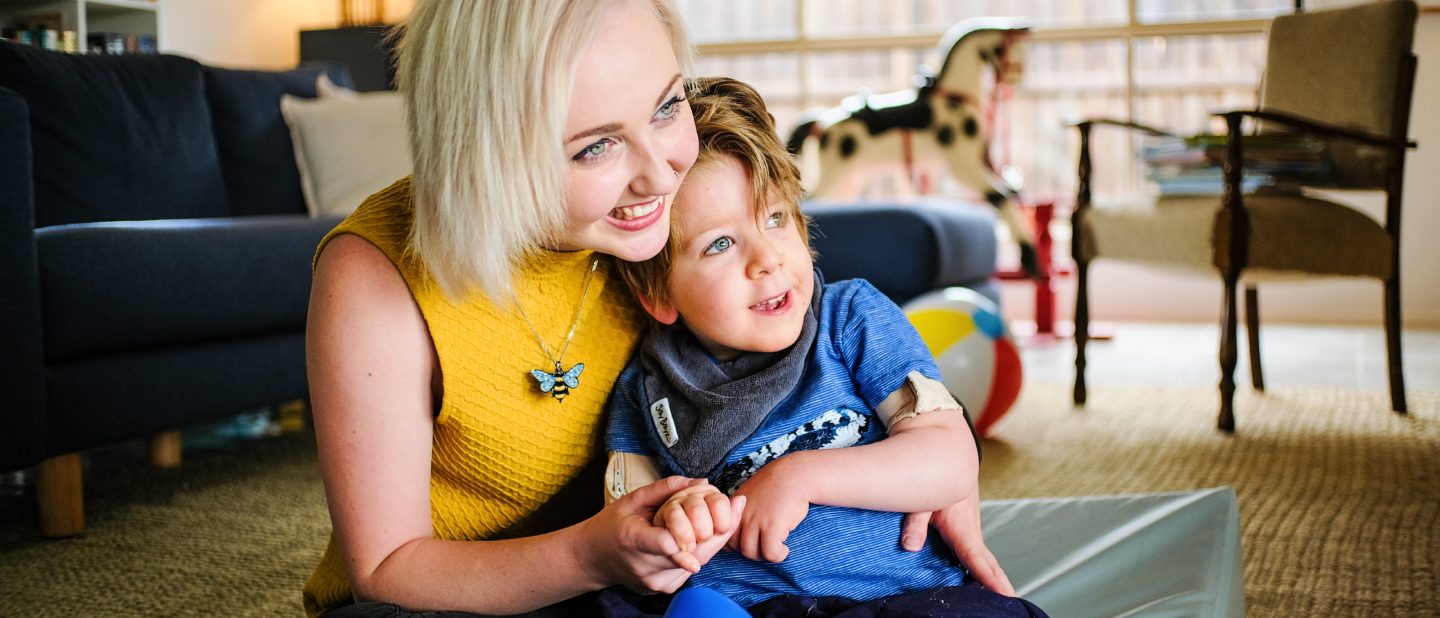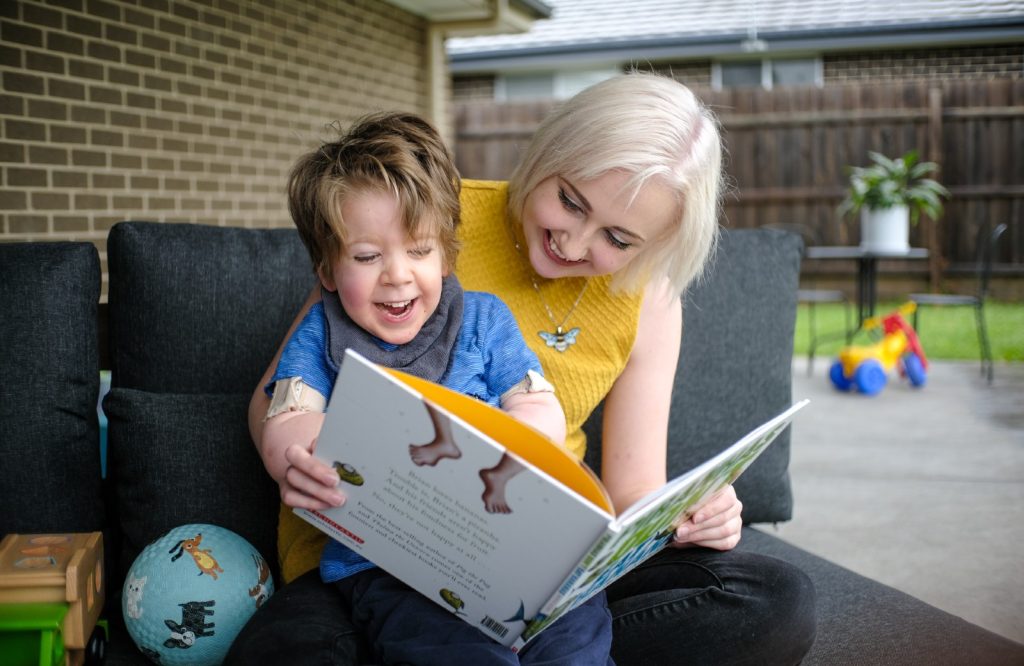
How to find (and get comfortable with) disability support: a parent’s guide
An opinion piece by Melanie Dimmitt
For many parents raising kids with disabilities, the concept of disability support makes a clunky entrance. Journalist Jo Abi was introduced to the notion during the first NDIS planning meeting for her teenage son, Philip, who has autism. “They didn’t call it disability support, they said ‘respite care’,” Jo recalls.
“It wasn’t like, ‘You can get a support worker to work with your kid at home, wouldn’t that be awesome?’ It was, ‘Do you need respite?’ And I felt like I was being asked, ‘are you coping?’”
To which Jo’s internal response was, “F**k you, I’m fine!”
Speaking, I suspect, for a sizeable cohort of mothers, Jo finds her own anxieties are a major barrier to seeking out, and locking in, support for her family. “I’m still really uncomfortable with the idea of it,” she says. “It’s just hard, because we’re so used to doing it all ourselves.”
Julie Jones, the creator of accessible travel platform, Have Wheelchair Will Travel, also battled with the idea of bringing support workers into her son Braeden’s life.
“He was nine by the time we had any,” says Julie. “I felt a bit of a stigma around getting help because I didn’t want to feel like I didn’t do everything for Braeden. Having people come into my home was also not something I was keen on. It pops your family bubble. You have to be really happy with the people you have, and gel with them, because they’re suddenly part of the whole family dynamic.”
Braeden, who has quadraplegic cerebral palsy, is now 25. He’s had many good relationships with support workers including several occupational therapy (OT) students that Julie connected with through Hireup, much like I’ve done on behalf of my own son, Arlo, who also has quadraplegic cerebral palsy.
With the help of Hireup, my own experience of navigating disability support has been mercifully smooth sailing. I made a profile for Arlo, who was four at the time, and wrote a message to Maddy, a local OT student and therapist aid. When she came over for a meet-and-greet, it just felt right. Arlo was – and is now evermore so – utterly smitten with her.

Meaningful relationships of any kind are tricky. Even those that start with love at first sight, as ours did with Maddy, have their awkward, uncomfortable and, occasionally, mortifying moments. So, in the spirit of saving us any amount of anguish, I turned to those in the know.
Chatting with Sue Walker and Michelle Agostino – two mothers whose children have enjoyed long-term, successful support relationships through Hireup – I gleaned some solid advice around seeking out, and getting good and settled with support. Starting with a healthy serve of tough love, from Sue.
LOSE THE GUILT
Sue runs a film production company, and tells me she’s always used support workers for her now adult son, Jim. When I raise the issue of parents feeling guilty about outsourcing their child’s care, she says, “Well, I’m far too selfish to feel that guilt, so I can’t identify with it.”
’Nuff said.
But for those of us without Sue’s level of conviction, it can be helpful to remember that much of what we do for our children falls outside the so-called ‘normal realm of parenting’. We need support, and our kids need a broad range of influences in their lives.
As Sue explains: “The more people you throw at your child, the better off they are in terms of negotiation, socialisation and communication – all of those things. You’ve just got to be really clever about who you surround your kids with.”
SEEK OUT THE SPARK
In her many years on the Hireup platform, Michelle has made hundreds of bookings with support workers on behalf of her eight-year-old son, Domenico, who has cerebral palsy. When asked what the secret is to finding and hiring good support, she says she books an hour-long trial session with every new candidate.
“I always get them in for an hour so they can come and see what I do but at the same time, I can observe them. And I can just tell the ones that do care, because they react and they interact differently with Domenico. You can pick them by a mile.”
DON’T SETTLE FOR LESS
Sue is “extremely fussy” when it comes to who is supporting her son, Jim. “I need people who are switched on, motivated and capable,” she says. “Support workers that just go through the motions are never going to be good enough for our family. If your gut tells you it’s the wrong person, it’s the wrong person.”
From the very first email exchange, Sue gets a feel for whether someone will be a good match. If she likes what she reads, she gets them in for a trial run. “Jim’s very quick to decide whether someone works for him or not. He won’t tell me as much, but I can always tell by his behaviour – whether he’s been stimulated, whether he’s had a good time, whether it’s been worth it. And then I don’t hesitate to cut someone loose if they’re not the right fit.”
FLEXIBILITY IS YOUR FRIEND
Ask any long-married couple what the secret to sustaining a relationship is and, chances are, the answer you’ll hear is ‘compromise’. This has certainly been the case for Michelle and her son Domenico’s support worker, Alax, who’s clocked up more than 700 shifts. “Being flexible has helped us a lot,” says Michelle. “We work around each other. If she says, ‘I need this day off’, I say ‘yep, no problem’. We communicate, we let each other know.”
So as not to be left in the lurch, Michelle does all she can to plan ahead. “When we’ve got school holidays coming up, I’ll ask Alax, ‘what do you want to do? Are you going away?’ And I’ll let her know what we’ll be doing so she knows what hours she can have available to her other clients.”


In the lead-up to Domenico having surgery, Alax helped Michelle recruit additional support workers to assist during his recovery. “She put a job description up for me because she knows, as a support worker, what people want to know about a child and what kind of care we needed.” This way, Michelle was able to bring in some backup. Which brings us nicely to this next piece of advice.
BUILD A TEAM AROUND YOUR KID
While it can be tempting to bunker down with your trusted, long-term support worker, now is not the time to be monogamous. “I think some people serve different things,” says Sue. One of Jim’s support workers takes him to and from the train station, while another one takes him golfing. “Find a mix of great support workers, that would be my advice. And don’t ever assume that there isn’t some fantastic person out there, for whom it hasn’t even occurred to them to be a disability support worker, that you could be giving a real purpose in life, as well.”
Digital disability support platforms make it fairly straightforward to onboard, and become either a client or worker. The beauty of Hireup, the only platform of its kind that employs and insures its support workers, is that there’s no need to have awkward conversations around pay, police checks and, should anything go awry during a shift, liability.
With the formalities taken care of, you can focus on the sometimes uncomfortable, but infinitely worthwhile, process of welcoming support workers into your child’s life and, hopefully, sparking the beginning of some beautiful friendships.
If you’d like help in securing NDIS funds for support workers, you can schedule a free, no-strings-attached meet and greet with a Hireup Support Partner. Ready to find, hire and manage top-notch support workers for your child? Head to hireup.com.au.








